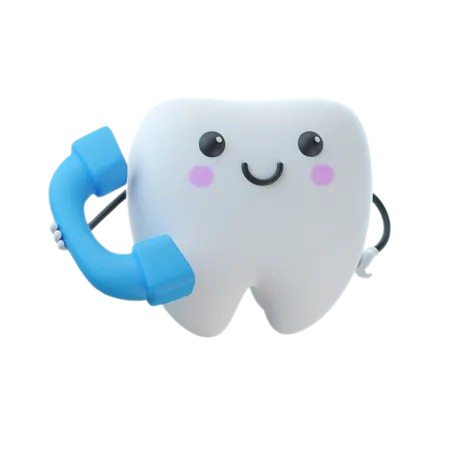Any pharmacy aisle or scroll through social media will highlight the upsurge in “natural” oral care products. Charcoal toothpaste is one of the biggest trends and it’s being marketed as a natural way to whiten your teeth and remove stains. The charcoal toothpaste has quickly become an individual’s go-to product to achieve a whiter smile! At KAA Dental, your trusted Dentist in Bargoed we think it is vital not to get carried away by the marketing hype, but to assess the science behind it also.
So, does charcoal toothpaste actually work? Let’s summarise what the research has shown, and what dentists have noticed when it comes to their everyday practice.
What the Research Really Says About Charcoal Toothpaste
1. Whitening results are disappointing
A lot of people choose charcoal toothpaste to whiten their teeth, yet peer-reviewed research doesn’t show they are more effective than traditional whitening toothpaste. An article published in 2019 in the Journal of the American Dental Association (JADA) reviewed 659 studies and concluded there was no scientific basis that charcoal toothpaste whitens teeth more than ordinary fluoride toothpaste. Recent studies yield similar conclusions regarding charcoal’s lack of a strong chemical whitening mechanism—it is mostly surface abrasion (or scrubbing off the stain)—and charcoal toothpaste will only “whiten” an event where the stained teeth are non-vital or in need of polishing.
2. Abrasiveness could result in long-term damage
A significant concern noted in research is that charcoal toothpaste is highly abrasive. The texture of abrasiveness makes the teeth feel polished, smooth, and clean, but abrasive toothpaste will ultimately wear away enamel over time. Enamel does not regenerate: as the outer protective covering gets thinner, underlying yellow dentin becomes visible, ironically making teeth appear dark.
Laboratory studies have confirmed that charcoal pastes can also result in increased roughness to the tooth surface.
3. Many brands leave fluoride out
Fluoride is one of the most significant active ingredients that toothpaste can have because it strengthens enamel and helps protect your teeth from cavities. Many charcoal products omit fluoride either to look “all-natural” or because they are marketed as cosmetic pastes instead of protective pastes (more on that below).
This is a huge red flag. Even if charcoal toothpaste does make your teeth look cleaner temporarily, it is significantly increasing your risk of cavities and future dental problems without fluoride.
4. Safety and claims are still unproven
The British Dental Journal and other scientific reviews have concluded that most of the claims regarding charcoal toothpaste lack quality supporting evidence. Continuing until larger and well-studied clinical trials occur, dental professionals are cautious.
What We Witness with KAA Dental as a Practice where we serve patients across south Wales, including as a dentist in Bargoed and dentist near Aberdare, and we see some similar trends with charcoal toothpaste among our patients.
A short term gain but longer term problems. Although some patients see a small increase in brightness after a few uses, when used daily we usually see a rise in sensitivity, with thinning enamel, and at times faster wear on any restoratives.
Durability of stains matters. Charcoal toothpaste may remove some surface stains from tea, coffee, or smoking. But it will not touch discoloration of deeper stains, including discolouration related to age. Medication, which darkened the tooth, will not respond to charcoal. In these cases, you would need professional whitening treatment.
Cavities are common without fluoride. In particular, we tend to see a trend where the patients have shifted to charcoal toothpaste and have less fluoride and there are new cavities, especially if they are at higher risk factors anyway i.e. more snacking, lower saliva or orthodontics.
Different but still safe in moderation. For patients who like the feel and taste of using charcoal toothpaste, we like to recommend using charcoal toothpaste with fluoride toothpaste more interchangeably, or only a few times per week. A soft toothbrush and gentle technique are added recommendations that further reduce risk of erosion of enamel.
Whitening toothpaste with safe abrasives: Many fluoride toothpastes now include mild polishing agents to help remove stains while protecting enamel.
Professional whitening treatments: Whitening trays custom made or in-office treatments lead to much more reliable results that can be seen because they work by breaking down the actual stain molecules chemically.
The Bottom Line
Charcoal toothpaste is probably more hype than help for most people. According to current science studies it will have no better whitening effects than normal fluoride toothpaste and its abrasive nature can wear away enamel and restorations if over-used, while some products also do not contain fluoride immediately opening our teeth up to cavities.
At KAA Dental, your local Dentist in Bargoed and Dentist near Aberdare, we want you to enjoy a smile that is bright but also healthy and strong. If you like the idea of charcoal toothpaste, try to use it sparingly and at least always use it with some fluoride protection. But better still, we can help you find whitening options that are safe and effective.
Want to enjoy a healthy, brighter smile?
If you are interested in whitening your teeth, call KAA Dental and book an appointment today. We’ll assess your enamel, determine why your teeth are discolored, and suggest the safest and most effective whitening options for you.
FAQ's
Charcoal toothpaste does not chemically whiten teeth. It may remove some surface stains from coffee, tea, or smoking, but research shows it is not more effective than regular fluoride toothpaste for true whitening.
Charcoal toothpaste can be harmful if used regularly because it is often abrasive. Over time, it may wear down enamel, increase tooth sensitivity, and make teeth appear darker as enamel thins.
Many charcoal toothpastes do not contain fluoride. This increases the risk of cavities because fluoride is essential for strengthening enamel and protecting teeth from decay.


